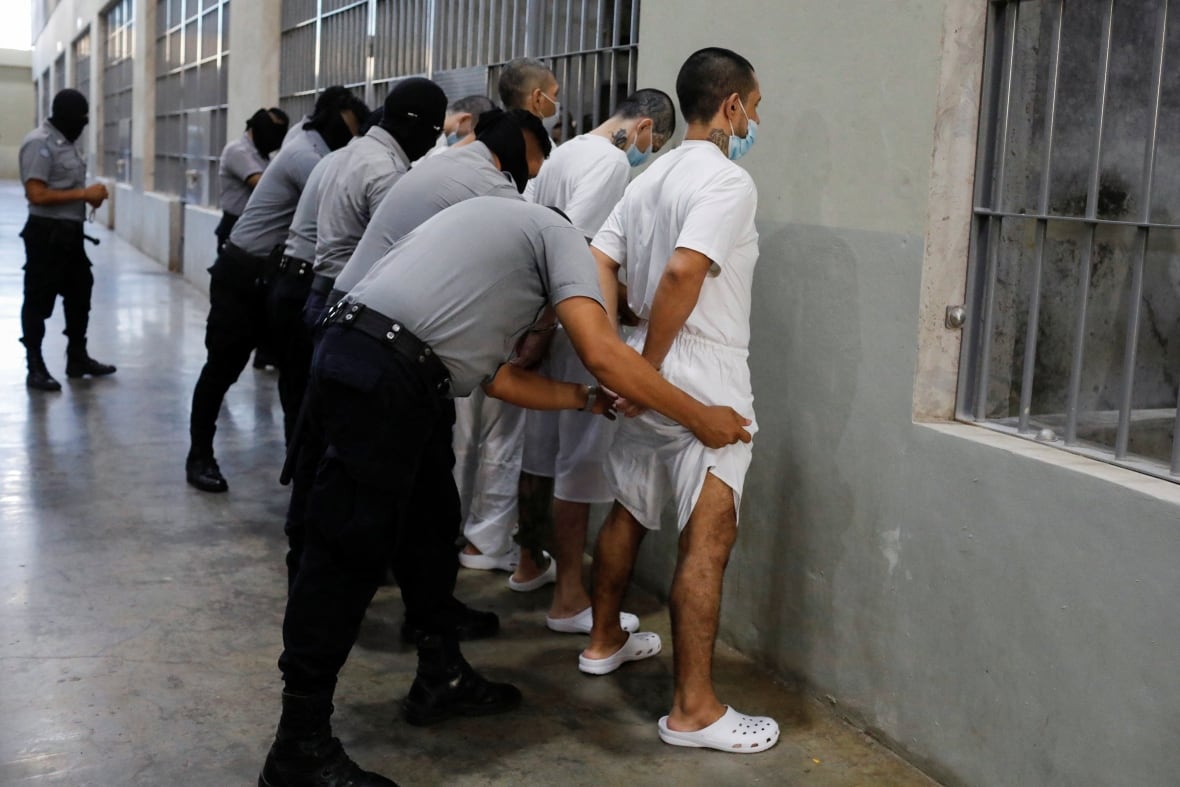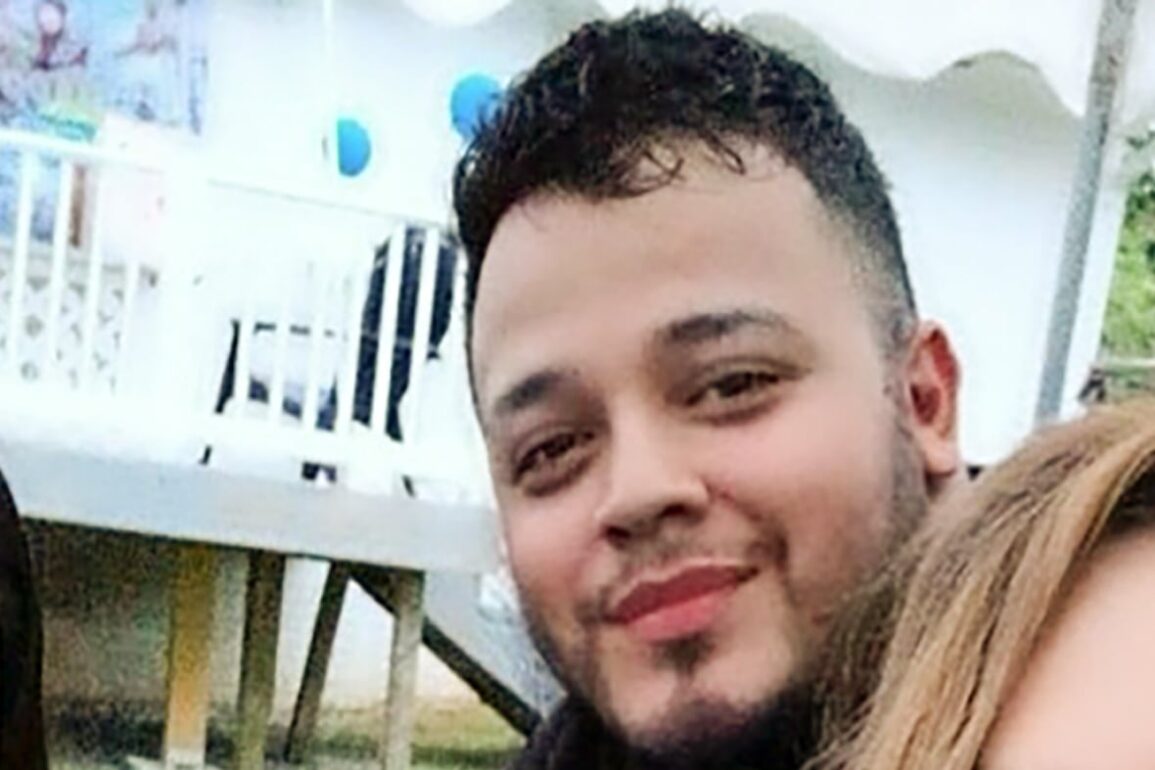The U.S. government’s decision to arrest a Maryland man and send him to a notorious prison in El Salvador appears to be “wholly lawless,” a federal judge wrote Sunday in a legal opinion explaining why she had ordered the Trump administration to bring him back to the United States.
There is little to no evidence to support a “vague, uncorroborated” allegation that Kilmar Abrego Garcia was once in the MS-13 street gang or, especially, to “deliver him into one of the most dangerous prisons in the Western Hemisphere,” U.S. District Judge Paula Xinis wrote.
Xinis said an immigration judge had expressly barred the U.S. in 2019 from deporting Abrego Garcia, 29, to his native El Salvador, where he faced likely persecution by local gangs.
The White House has described Abrego Garcia’s deportation as an “administrative error” but has also cast him an MS-13 gang member.
The Justice Department has asked the 4th U.S. Circuit Court of Appeals to pause Xinis’s ruling.
Judge unsatisfied with government inaction
She said it was “eye-popping” that the government had argued that it could not be forced to bring Abrego Garcia back because he is no longer in U.S. custody.

“They do indeed cling to the stunning proposition that they can forcibly remove any person — migrant and U.S. citizen alike — to prisons outside the United States, and then baldly assert they have no way to effectuate return because they are no longer the ‘custodian,’ and the Court thus lacks jurisdiction,” Xinis wrote.
An immigration judge denied Abrego Garcia’s asylum request in October 2019, but granted him protection from being deported back to El Salvador. He was released after U.S. Immigration and Customs Enforcement (ICE), did not appeal.
Abrego Garcia later married Jennifer Vasquez Sura, who is a U.S. citizen, and the couple are parents to their son and her two children from a previous relationship.
Vasquez Sura said in court documents that their young autistic son has sought comfort in the scent of his missing father’s clothes since his March 12 arrest.
The Trump administration has touted an immigration crackdown that includes putting shackled immigrants on U.S. military planes, expanding agents’ arrests of people who are in the country illegally or who the government believes breached the conditions of their work or student visas.
‘I’m all for it’: Trump on using El Salvador prisons
The Trump administration has welcomed a deal with El Salvador, which is housing several people recently deported from the U.S. in its immense and notorious Terrorism Confinement Center, or CECOT prison.
“If they can house these horrible criminals for a lot less money than it costs us, I’m all for it,” Trump told reporters late Sunday, admitting, “I don’t know what the law says on that.”
The Trump administration deported more than 200 immigrants by invoking the Alien Enemies Act — a wartime measure — alleging they were members of Tren de Aragua, a Venezuelan gang. Andrew Chang explains how Trump is interpreting the language of the 1798 law in order to avoid the standard immigration court system, and why experts say it’s a slippery slope.
Trump last month invoked the Alien Enemies Act of 1798 to justify flights carrying 261 deportees, including 137 Venezuelan men.
The Trump administration had begun edging closer to calling the migrant issue a war, most notably by designating eight Latin American criminal groups, including Venezuela’s Tren de Aragua, as “foreign terrorist organizations.”
But soon, stories began to surface that the scene was not quite as it appeared. Some of them men had long insisted they had no gang ties, and their families had produced documents showing they had no criminal records.
It also appears the administration relied on tattoos to assess whether some were gang members.
U.S. District Judge James Boasberg, hearing legal challenges on that group deportation, has pressed the Justice Department to explain its actions and criticized the administration for secrecy and acting “in bad faith.” At least one flight took off even after Boasberg ordered them to stop.

Boasberg has said he could issue a ruling as early as this week on whether there are grounds to find anyone in contempt of court for defying the court order.
“I’ve been doing this for a long time, and I’ve seen some pretty weird stuff,” said Texas attorney John Dutton, who represented one of the men who disappeared into the El Salvadoran prison. “But to do this in the middle of the night, to send people to another country, and straight to a prison when they haven’t been convicted of a crime? It makes no sense.”
Gay makeup artist deported
A Venezuelan makeup artist — Andry Jose Hernandez Romero — is among those caught up in the mass deportations. He fled the country last summer after his boss at a state-run news channel publicly slapped him.
Romero hoped to find a new life in the U.S. He used a U.S. Customs and Border Protection phone app to arrange an appointment at a U.S. border crossing in San Diego.
Reminder that this is Andry. He is a professional makeup artist from Venezuela. He has no criminal history. He has been in a theater troupe since he was 7 and loves pageants. His family is distraught and misses him. He is sitting in a cell in El Salvador tonight. #FreeAndry pic.twitter.com/twmLTcBCd6
That’s where he was asked about his tattoos, and where his trouble started.
U.S. immigration authorities use a series of “gang identifiers” to help them spot members of Tren de Aragua. Some are obvious, such as trafficking drugs with known Tren members.
Some identifiers are more surprising: Chicago Bulls jerseys, “high-end urban street wear,” and tattoos of clocks, stars or crowns, according to government instructional material filed in court by the American Civil Liberties Union.
Tattoos were key to marking many deported men as Tren members, according to documents and lawyers.
Romero, who is in his early 20s, has a crown tattooed on each wrist. One is next to the word “Mom.” The other next to “Dad.” The crowns, according to his lawyer, also pay homage to his hometown’s Christmastime “Three Kings” festival, and to his work in beauty pageants, where crowns are common.
Romero is now somewhere in CECOT. 60 Minutes — which, in a broadcast on Sunday night, said it could find no evidence of a criminal record for the majority of the men — produced photos of Romero at CECOT that even his American lawyer had not seen before.
Despite the controversies, the Trump administration is now urging the Supreme Court for permission to resume deportations of Venezuelan migrants to El Salvador under the Alien Enemies Act.
This post was originally published on this site be sure to check out more of their content.










